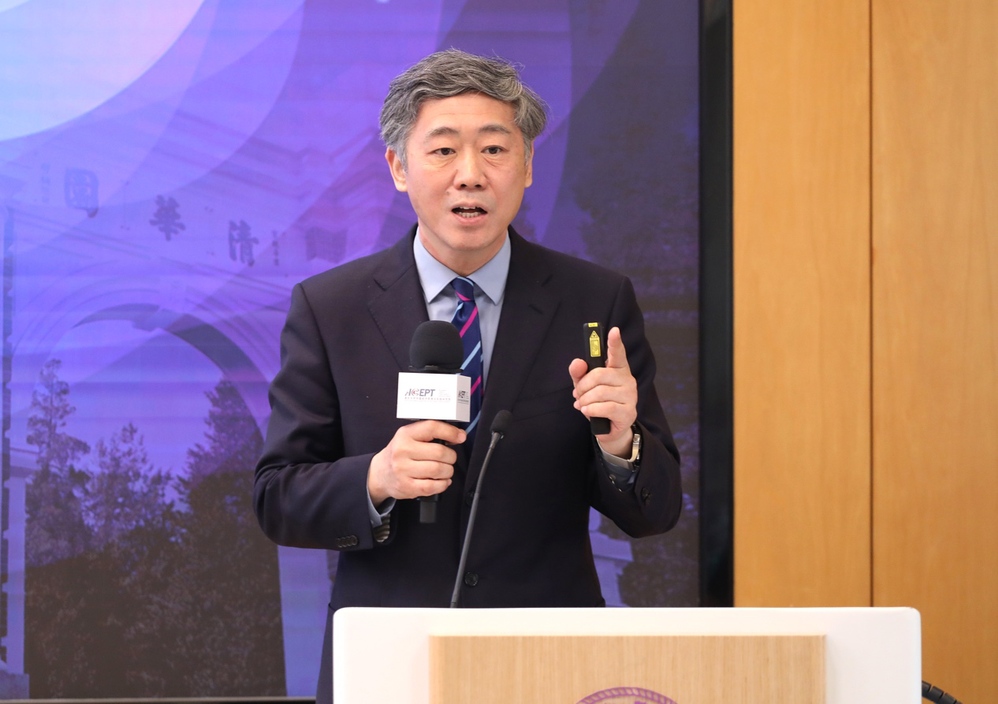
The following is a summary of David Daokui Li's keynote address to attendees at the Sixth Annual Conference of Government and Economics held at Tsinghua University, Beijing, on April 27, 2024. Dr. Li is Co-President of SAGE and Director of ACCEPT.
On April 27, 2024, the Sixth Annual Conference of Government and Economics, co-hosted by the Society for the Analysis of Government and Economics (SAGE) along with Tsinghua University's School of Social Sciences and the Academic Center for Chinese Economic Practice and Thinking (ACCEPT), was convened on campus at Tsinghua University. David Daokui Li, Co-President of SAGE and Director of ACCEPT, delivered a keynote address to attendees at the conference introducing the key features of government and economics as a field of study.
In his speech, David Daokui Li started off by first introducing three basic concepts that define government and economics as a field of study. First, the government has become an important actor in the modern market economy, not only playing the role of a referee but also that of an athlete. The government itself comprises two different subsegments of individuals and institutions: one subsegment refers to permanent government institutions and their civil servants, while the other subsegment concerns the decision-makers and related institutions established by way of political processes. Second, the actions and behaviors of governments directly determine the performance of the modern market economy. Third, the actions and behaviors of governments depend on their own institutions as well as the design of their incentive structures. At its core, research in government and economics aims to shed light on the incentives and institutional configurations of governments so as to let the market more effectively play its part and support the establishment of a higher quality market economy.
Li asserted that the current stage of development for China's economy, and even the modernization process for China as a whole, faces not only the predicament of being put into a "physical stranglehold" in a more tangible and manifest way, but now also faces a more intangible and hidden form of "mental stranglehold"—that is to say, the theoretical basis for China's continued economic development has not yet been fully ascertained, a state of affairs that has since repeatedly become a pretext for certain others countries to criticize China. Cultivating an independent knowledge system for advancing the subjects of philosophy and social sciences in China must necessarily begin with the country's real-world practice, including elevating the Chinese school of thought to become a new branch of knowledge within the discipline of economics, one that is more universal, more dynamic and more widely received. This too was in fact the original intention for establishing SAGE. There are nine major topics within the field of government and economics, moreover, that are deserving of careful study: including the similarities and differences between government and corporate behavior; how the political system and economic system affect government behavior; government and market development, supervision and regulation; government and enterprise market entry and exit behavior; fiscal and taxation systems and government behavior; government and macroeconomic regulation and control; government and foreign economic relations; government and income distribution; and government and long-term economic development. Regarding research methods, Li called for a comprehensive research paradigm that combines cases, theory, and statistical analysis (CTS), starting from vivid real-world cases, applying a simple theoretical approach, and corroborating the universal applicability of the applied theoretical mechanism through the analysis of statistical data.